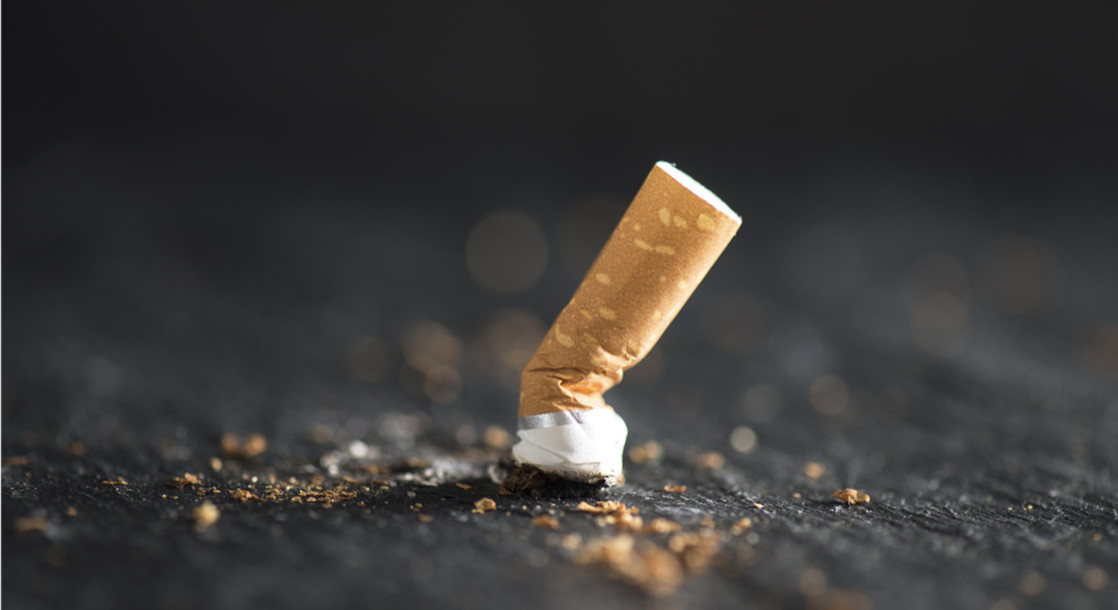Photo via iStock/ solidcolours
As the global scientific community begins to embrace the multiple medical benefits of cannabis, the body of research exploring new possible medical uses of the plant has exploded. One such study recently published in the journal Addiction has found that cannabidiol (CBD) — one of the major non-psychoactive chemicals found in marijuana — may help nicotine smokers kick their habit by altering the brain's attentional bias.
Back in 2013, a study published in the journal Addictive Behaviors found that smokers who were given a CBD inhaler reduced their cigarette consumption by around 40% compared to smokers given a placebo. The study was limited, however, and the researchers were unable to determine the exact mechanism by which CBD was decreasing smokers' desire to light up.
The promising results of this study convinced Chandni Hindocha, a doctoral student at the Clinical Psychopharmacology Unit of University College London to conduct further research on the topic. “Cannabis, and the brain system which it acts upon, the endocannabinoid system, is highly associated with tobacco use, but I wanted to investigate if a component of cannabis, cannabidiol, a non-intoxicating cannabinoid, could be used in a positive way to treat withdrawal,” said Hindocha to PsyPost.
The 2013 study reported “such a large effect, but there was no mechanism investigated,” Hindocha explained. “I thought that the mechanism might be through a modulation of the salience (or attentional grabbing) properties of drug cues; as we have seen this also before. In other words, cannabis users with high CBD in their cannabis showed a lower bias to [these] cues.”
In the new study, 30 nicotine-dependent smokers were asked to abstain from smoking cigarettes overnight, and randomly assigned to groups that would receive either a 800-milligram dose of CBD or a placebo. Each of the smokers was then shown a mix of cigarette-themed and neutral photos while researchers measured their attentional bias. Researchers ultimately found that the smokers who took the placebo paid more attention to the smoking-related images than the participants who received CBD.
“A single 800‐mg oral dose of cannabidiol reduced the salience and pleasantness of cigarette cues, compared with placebo, after overnight cigarette abstinence in dependent smokers,” the study concluded. The researchers report that “cannabidiol did not influence tobacco craving or withdrawal or any subjectively rated side effects,” however.
“Cannabidiol can reduce some aspects of nicotine withdrawal in dependent cigarette smokers, which include the attentional bias to and liking of drug cues, but did not affect craving withdrawal, cognition or impulsivity associated with withdrawal,” said Hindocha to PsyPost. “This is likely because we gave people a single dose of the drug.”
Hindocha also noted that it will take more research to fully explore cannabis' effectiveness as an aid to smoking cessation. “Many questions still need to be addressed such as what is the efficacy of CBD in comparison to leading smoking cessation drugs? Can CBD be used as an adjunct to smoking cessation drugs? What dose of CBD is actually required for the desired effect on craving and withdrawal? Is there another mechanism by which CBD acts?”
From its apparent power as a treatment for seizures to its popularity as a natural wellness supplement, at least one thing about CBD is crystal clear — we have much more to learn about its potential medical applications.











